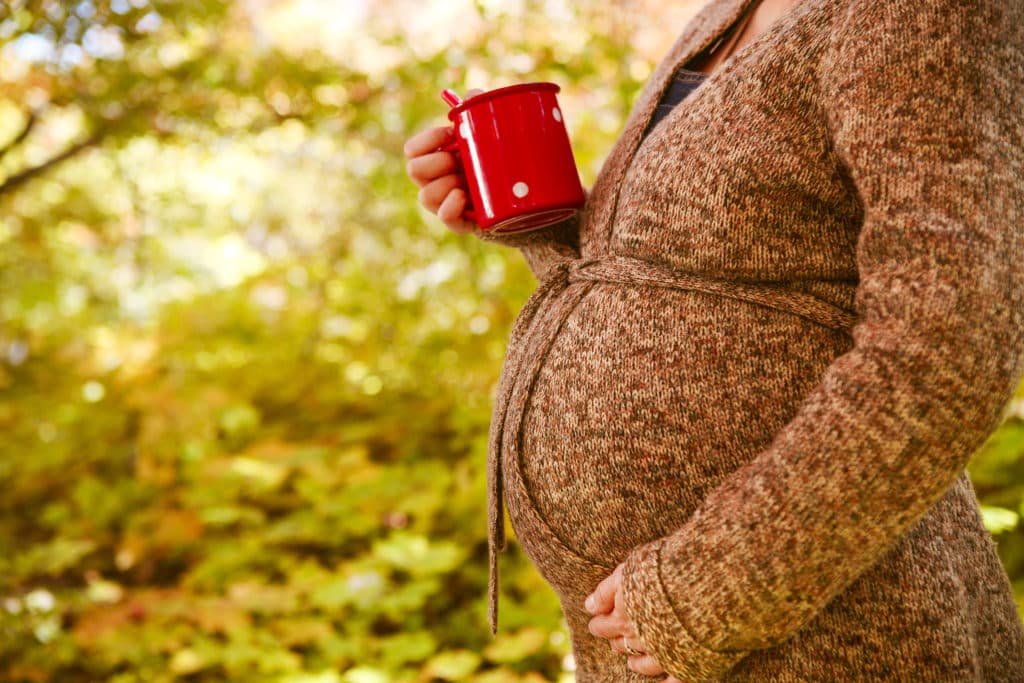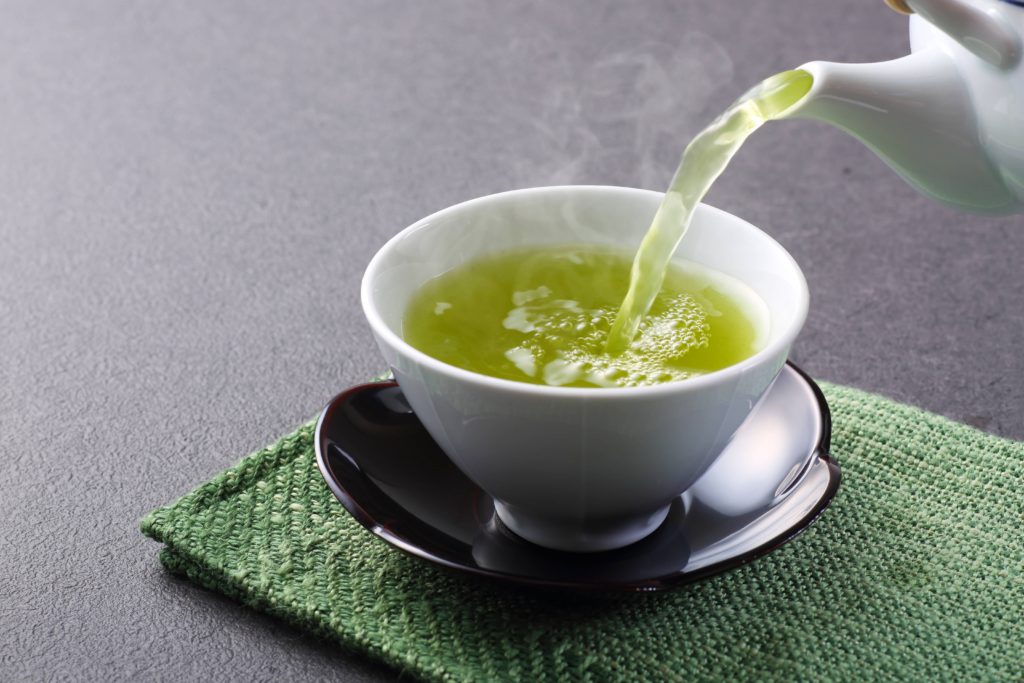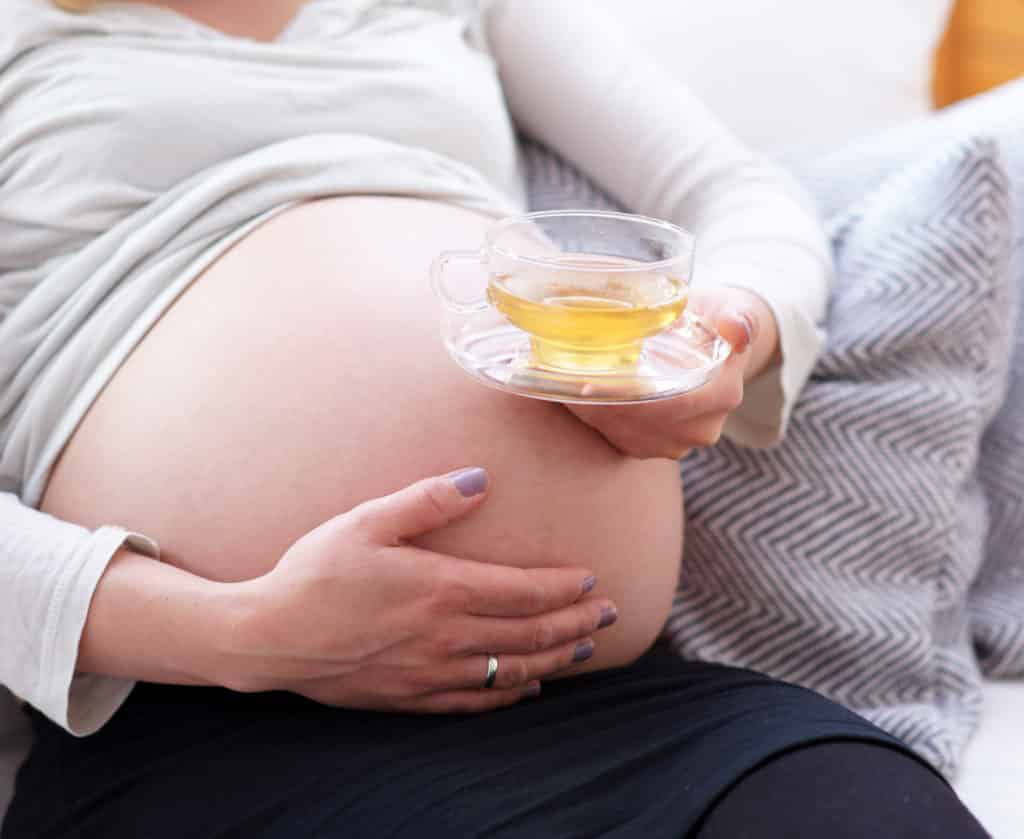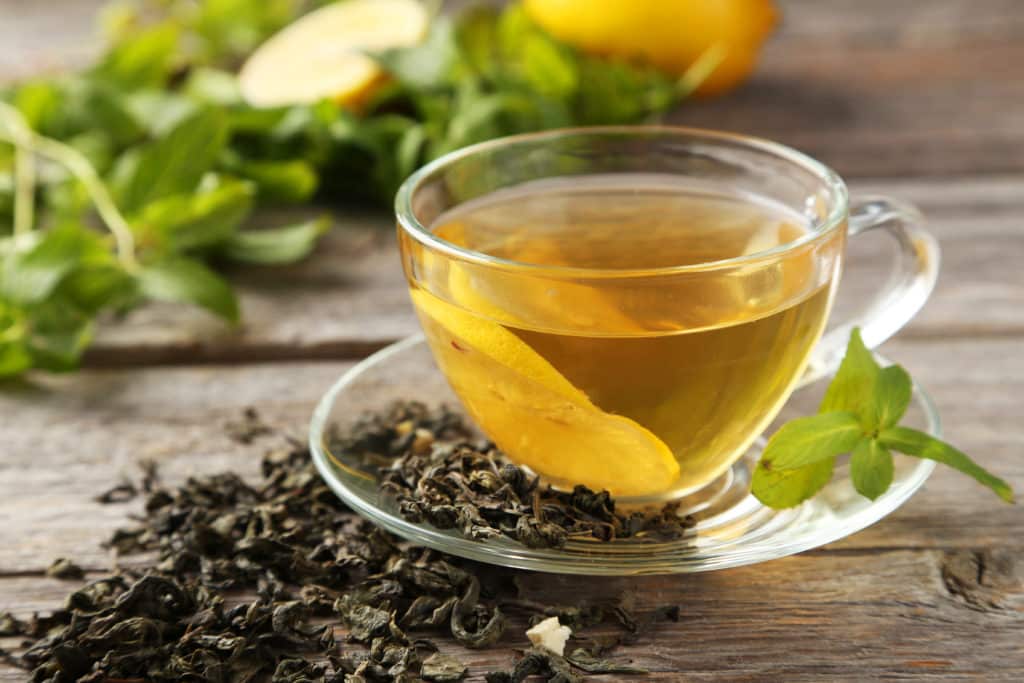In all cases, pregnancy comes with an increase in body fluid demands. Therefore, increased fluid intake becomes necessary as it stimulates normal placental and amniotic fluid development. In fact, we advise pregnant women to drink between eight to twelve glasses of water daily. In addition, moms-to-be are counseled to avoid meals & drinks that lead to excess urination.

Asides from water, what else can a pregnant woman drink?
It would interest you to note that tea is the second most-consumed liquid in the world (right after water). Although there are several tea options, green tea is very popular among pregnant women. In most cases, tea is regarded as a healthy and reliable fluid option during pregnancy.
What Is Green Tea?
Green tea contains a collection of healthy compounds, made from the leaf of the unfermented Camellia Sinensis plant.

Other tea options from the same source include black tea, white tea, yellow tea, and oolong tea. However, one feature that puts green tea on edge in terms of significance is that it is made from un-oxidized leaves with little or no processing involved.
As a result, green tea retains its natural antioxidant and polyphenol content which improves brain function, reduces fat content, protects body cells from cancer, and lowers the risk of heart disease. In fact, we agree that it is one of the healthiest beverages on earth.
Is Green Tea Safe During Pregnancy?
Although green tea has a mild earthy taste, it is not regarded as an herbal tea. It contains caffeine, just like coffee, but in smaller quantities. Averagely, an 8-ounce cup of green tea contains 24 to 45mg of caffeine, depending on how it is brewed. On the same scale, an 8-ounce cup of coffee may contain amounts of caffeine ranging from 95 to 200 mg.

This proves that green tea contains a significantly lower percentage of caffeine compared to coffee.
So, green tea contains caffeine in smaller quantities compared to the amount contained in your usual cup of coffee, but not so little as not to have any effect at all. Even a cup of decaffeinated green tea contains small amounts of caffeine, at least 12 mg or less.
Of course, the focal point of discussion is caffeine. This is because caffeine is a stimulant that (in excess amounts) can cross the placental barrier into a developing baby’s bloodstream, causing various medical conditions.
However, medical studies have shown that moderate consumption of beverages like green tea during pregnancy has no adverse effect on a baby’s development.
What Quantity Of Green Tea Is Safe During Pregnancy?
It is recommendable that pregnant women limit their caffeine intake to less than 200 mg per day. You can find out more about pregnancy & coffee here. Studies show that consumption of over 200mg of caffeine daily may be harmful to a developing child.

Considering the fact that a cup of green tea contains about 45mg of caffeine, it’s best to stick with nothing more than 4 cups daily.
Benefits of Green Tea In Pregnancy
- Immune Boost: Pregnancy represses immunity. Nonetheless, drinking green tea would help keep mild infections under check.
- Regulates Blood Sugar: This benefit is especially important to pregnant women with gestational diabetes.
- Therapeutic Effect: In addition to its soothing taste, green tea contains Theanine which is an amino acid that eases mood swings and relaxes the muscles.
- Protective Action: This drink contains antioxidants that prevent cell damage and protect against heart disease, high blood pressure, and stress-related illnesses by clearing out toxic substances.
What Are The Side Effects?
- Stimulating Effect: Although it’s not as high as what you get from regular coffee, green tea contains caffeine which is a stimulant. Excess caffeine consumption would keep you awake for longer periods, elevating stress levels and increasing blood pressure. The body’s ability to break down caffeine reduces as pregnancy progresses. Therefore, excess consumption of green tea may be harmful during pregnancy.
- Excess Urination: Green tea is a diuretic, it causes you to pee more often. While consuming it as a fluid option during pregnancy, remember that it would definitely increase the number of bathroom breaks you may have to take.
- Reduced Iron Absorption: It is important to note that green tea, like every other tea, may reduce your body’s ability to absorb iron and folic acid from your meals. This is really important because Folic Acid and Iron are crucial to your baby’s development.
Conclusion
We understand pregnancy comes with many demands and changes; including dietary changes. However, you wouldn’t stay pregnant forever and slight changes for your baby’s sake aren’t as scary as they seem.
It’s alright to drink green tea (in moderate amounts) while pregnant, however, read product labels & ingredient lists before making any choice of tea options.
Stay Strong, Mama!
References
Ana Claudia Losinskas Hachul, Valter Tadeu Boldarine, Nelson Inácio Pinto Neto, Mayara Franzoi Moreno, Patricia Oliveira Carvalho, Alexandra C. H. F. Sawaya, Eliane Beraldi Ribeiro, Claudia Maria Oller do Nascimento, and Lila Missae Oyama (2018). Effect of the consumption of green tea extract during pregnancy and lactation on metabolism of mothers and 28d-old offspring. Scientific Report. Accessed on 15th March, 2021 from https://www.ncbi.nlm.nih.gov/pmc/articles/PMC5790015/
Ana Claudia Losinskas Hachul, Valter Tadeu Boldarine, Nelson Inácio Pinto Neto, Mayara Franzoi Moreno, Patricia Oliveira Carvalho, Alexandra C. H. F. Sawaya, Eliane Beraldi Ribeiro, Claudia Maria Oller do Nascimento, and Lila Missae Oyama (2018). Maternal consumption of green tea extract during pregnancy and lactation alters offspring’s metabolism in rats. Plos One. Accessed on 15th March, 2021 from https://journals.plos.org/plosone/article?id=10.1371/journal.pone.0199969 Cynthia K. Colapinto, Tye E. Arbuckle. Lise Dubois and William Fraser (2015). Tea consumption in pregnancy as a predictor of pesticide exposure and adverse birth outcomes: The MIREC Study. Environmental Research, Volume 142, October 2015, Pages 77-83. Accessed on 15th March, 2021 from https://doi.org/10.1016/j.envres.2015.06.020

